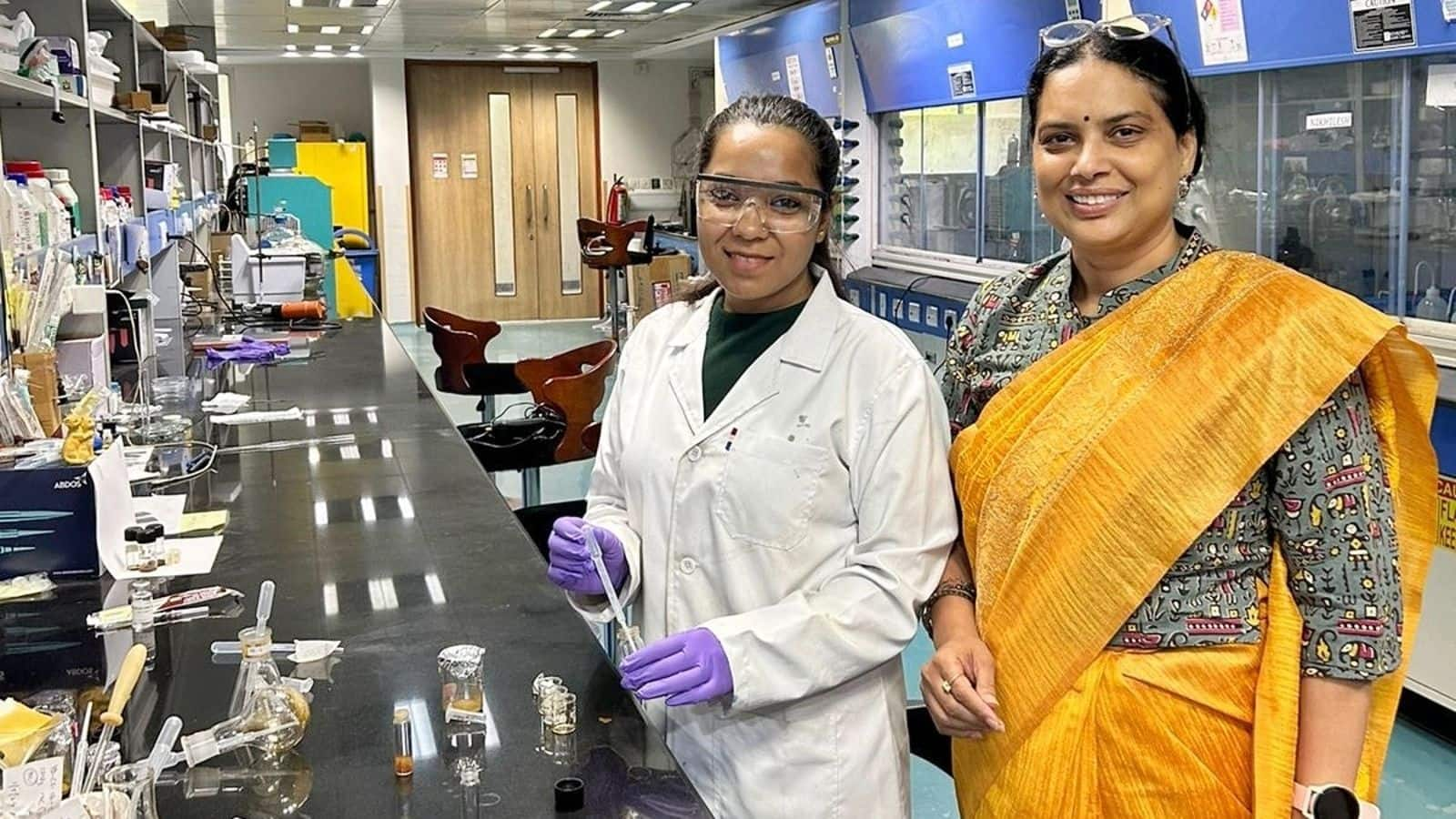
Indian scientists develop self-healing polymers using waste materials
What's the story
Researchers at Shiv Nadar University have invented sustainable polymers using industrial waste, marking a significant stride in tackling the global plastic pollution crisis. The team, led by Professor Bimlesh Lochab and Dr. Sangeeta Sahu from the Department of Chemistry, aim to achieve carbon neutrality with their innovation of waste-derived polymers. The raw materials for this process were elemental sulfur from petroleum refining industries and cardanol from cashew nut industry waste.
Polymer synthesis
A sustainable alternative to traditional plastics
The synthesis of these sustainable polymers is not technically complex, promoting easy adoption across various industries. The research findings have been published in the ACS Journal. According to the team, these polymers belong to an emerging class of vitrimers that can be reshaped and reused without disposal. This property is similar to regenerative capabilities observed in human skin.
Self-healing
Polymers mimic temperature-responsive wound healing
The polymers have the ability to self-heal when exposed to specific temperatures, imitating temperature-responsive wound healing processes. The researchers envision these waste-derived polymers being used in a variety of applications such as flexible coatings, robust adhesives, and flame-resistant materials for battery technology. The cardanol benzoxazine-sulfur polymer, with highlights such as recycling, reprocessing, self-healing, and shape recovery (R2S2), exhibits versatility across diverse industries.
Future impact
Polymer's potential in sustainability
The new polymer also showcases rebondable adhesive properties as well as impressive load-bearing capacity. "The material demonstrates excellent adhesion to metal surfaces, such as aluminium-aluminium, steel-steel, and aluminium-steel hybrid substrates, with remarkable strength," said Lochab. These metal substrates remain undamaged after application and use of the adhesive, minimizing waste and enhancing reuse potential.